
Transplantation and Cellular Therapy
Scope & Guideline
Unleashing Potential in Cellular Therapy and Transplantation.
Introduction
Aims and Scopes
- Hematopoietic Stem Cell Transplantation (HSCT):
The journal extensively covers various aspects of HSCT, including donor selection, conditioning regimens, post-transplant complications, and long-term outcomes, reflecting the complexities and advancements in this critical area of transplant medicine. - Chimeric Antigen Receptor (CAR) T-Cell Therapy:
A significant focus is placed on CAR T-cell therapies, including their efficacy, safety, and integration with HSCT. The journal explores the evolving landscape of CAR therapies, especially in hematologic malignancies. - Graft-Versus-Host Disease (GVHD):
Research on GVHD prevention, diagnosis, management, and outcomes is a core area, emphasizing its impact on patient survival and quality of life post-transplant. - Infection Management in Transplant Recipients:
The journal addresses the challenges of infectious diseases in transplant patients, including prophylaxis, treatment strategies, and the impact of infections on transplant outcomes. - Patient-Reported Outcomes and Quality of Life:
There is a growing emphasis on understanding the patient experience, mental health, and quality of life following transplantation, highlighting the holistic approach to patient care. - Emerging Therapies and Novel Approaches:
The journal promotes research on new therapeutic strategies, including novel drugs, immunotherapies, and precision medicine approaches that enhance transplantation outcomes. - Health Disparities and Access to Care:
Investigations into the socioeconomic, racial, and geographic disparities in access to transplantation and cellular therapies are increasingly prominent, reflecting a commitment to equitable healthcare.
Trending and Emerging
- Integration of Telehealth in Transplant Care:
The adoption of telehealth solutions for pre- and post-transplant care is becoming increasingly popular, particularly in response to the COVID-19 pandemic, emphasizing the need for accessible patient management. - Advanced Biomarkers for Predicting Outcomes:
Research focusing on the development and validation of biomarkers to predict transplant outcomes is on the rise, aiding in personalized medicine approaches for transplant recipients. - Psychosocial Aspects of Transplantation:
There is a growing interest in the psychosocial impact of transplantation on patients and caregivers, including mental health, coping strategies, and support systems. - Innovations in GVHD Management:
New strategies and therapies aimed at preventing and treating GVHD are gaining prominence, reflecting the ongoing challenges associated with this condition. - Diversity and Inclusion in Transplant Research:
The journal increasingly emphasizes studies addressing health disparities, focusing on diverse populations and the impact of social determinants on transplantation outcomes. - Long-Term Survivorship and Late Effects:
Research addressing the long-term effects of transplantation and the survivorship experience is emerging as a vital area of inquiry, focusing on health maintenance and quality of life. - Innovative Cellular Therapies Beyond CAR T-Cells:
The exploration of new cellular therapies, such as TCR-engineered cells and NK cell therapies, is gaining momentum as researchers seek to expand treatment options for various malignancies.
Declining or Waning
- Traditional Conditioning Regimens:
As new conditioning regimens and personalized approaches are developed, traditional conditioning methods are receiving less emphasis, indicating a shift toward more innovative strategies. - Longitudinal Studies of Established Procedures:
Research that focuses on well-established transplantation procedures is becoming less frequent, possibly due to the saturation of existing knowledge and the shift towards novel therapies and techniques. - Basic Science of Hematopoiesis:
While foundational research remains important, there is a noticeable decline in basic science studies related to hematopoiesis as the journal pivots towards clinical applications and translational research. - Cost-Effectiveness Analyses:
Although economic evaluations are still relevant, their frequency appears to be waning as the focus shifts towards clinical efficacy and patient outcomes rather than purely economic considerations. - Single-Center Studies:
Research output from single centers is decreasing, with a trend towards multicenter collaborative studies that provide broader insights and enhance the generalizability of findings.
Similar Journals
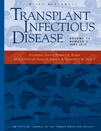
Transplant Infectious Disease
Navigating the landscape of infectious complications in transplant recipients.Transplant Infectious Disease is a premier journal dedicated to advancing the understanding of infectious complications in transplant recipients, contributing significantly to the fields of Infectious Diseases and Transplantation. Published by Wiley in the United Kingdom, this journal boasts an impressive reputation within the academic community, holding a 2023 Q2 quartile ranking in both Infectious Diseases and Transplantation, as well as notable Scopus rankings that position it among the top tiers of its categories. With a convergence of scholarly articles and research findings from 1999 through 2024, Transplant Infectious Disease serves as a critical resource for researchers, professionals, and students seeking to explore the intersection of transplantation and infectious diseases. The journal encourages open dialogue and knowledge dissemination through rigorous peer-reviewed content, making it an essential platform for those aiming to address the challenges and innovations in transplant medicine.

Transplantation Reviews
Advancing transplantation science through cutting-edge research.Transplantation Reviews is a premier scholarly journal published by Elsevier Science Inc, dedicated to advancing the field of transplantation and surgery. With an impressive impact factor and categorized in the top quartile (Q1) for both Surgery and Transplantation as of 2023, this journal prominently ranks in the 96th and 86th percentiles for its respective disciplines. Since its inception in 1987, it has provided a vital platform for researchers and professionals to disseminate high-quality, peer-reviewed articles that reflect the latest advancements and challenges in transplantation science. Although the journal is not currently open access, it remains a key resource for academic libraries and institutions. By fostering discussions and providing insights into clinical practices, Transplantation Reviews serves to enhance understanding and improve outcomes in the ever-evolving field of transplantation, making it an essential read for anyone engaged in this dynamic area of medicine.

International Journal of Molecular and Cellular Medicine
Driving Impactful Discoveries in Biochemistry and BiotechnologyInternational Journal of Molecular and Cellular Medicine, published by the CELLULAR & MOLECULAR BIOLOGY RESEARCH CENTER in Iran, is a leading platform dedicated to advancing research in various domains of molecular and cellular sciences. With an ISSN of 2251-9637 and E-ISSN 2251-9645, this journal features a rigorous peer-review process that ensures the publication of high-quality, impactful research. Spanning from 2016 to 2024, it is categorized in the third quartile (Q3) in Biochemistry, Cell Biology, Genetics, and Molecular Biology, and second quartile (Q2) in Biotechnology, underlining its significance in the scientific community. Although currently non-open access, it maintains credible visibility through Scopus rankings, reflecting its importance in fields such as Biochemistry, Molecular Medicine, and Genetics, where it holds respectable ranks and percentiles. This journal aims to foster collaboration and knowledge dissemination among researchers, professionals, and students in the pursuit of enhancing understanding and innovation in molecular and cellular medicine.
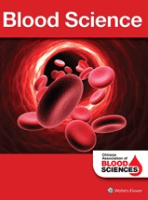
Blood Science
Elevating Knowledge in Hematology and Transfusion MedicineBlood Science is a distinguished peer-reviewed journal published by Lippincott Williams & Wilkins, focusing on the dynamic field of hematology. Since its inception, the journal has aimed to disseminate high-quality research and innovative findings that contribute to our understanding of blood-related health issues. With the ISSN 2543-6368, it offers a platform for academic discussions and breakthroughs in various subfields including hematopathology, blood disorders, and transfusion medicine. As of 2023, Blood Science is ranked in the third quartile (Q3) within the hematology category, indicating a burgeoning influence among its peers, with a Scopus rank of #101 out of 137 journals, placing it in the 26th percentile. Although it is not an open-access journal, it provides essential insights and valuable data for researchers, healthcare professionals, and students alike, enhancing the collective knowledge and practices in hematology. With a publication period spanning from 2019 to 2024, Blood Science remains committed to fostering the advancement of blood science research and enhancing patient care methodologies.
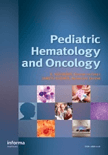
PEDIATRIC HEMATOLOGY AND ONCOLOGY
Championing excellence in pediatric medical advancements.Pediatric Hematology and Oncology, published by Taylor & Francis Inc, serves as a vital platform dedicated to the fields of hematology, oncology, and pediatrics, providing a comprehensive avenue for the dissemination of scholarly research and clinical advancements. With an ISSN of 0888-0018 and an E-ISSN of 1521-0669, this journal has successfully converged its expertise over the years from 1984 to 2024. Ranked in the Q3 category for Hematology and Oncology, alongside a Q2 ranking in Pediatrics, Perinatology, and Child Health (2023), it engages a diverse readership comprising researchers, healthcare professionals, and students eager to explore groundbreaking studies in child health and treatment methodologies. While it currently does not offer Open Access options, the journal is widely cited and recognized, particularly in its specialized fields, fostering a rich environment for dialogue and innovation in the management of pediatric hematological and oncological disorders. The journal is based in the United Kingdom at 530 Walnut Street, Ste 850, Philadelphia, PA 19106, making it an essential resource for those pursuing excellence in pediatric medical research.
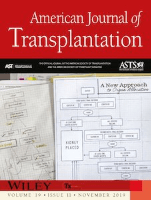
AMERICAN JOURNAL OF TRANSPLANTATION
Transforming lives through innovative transplantation research.American Journal of Transplantation, published by Elsevier Science Inc, is a premier academic journal dedicated to the critical field of transplantation. With an impressive impact factor and prestigious rankings in Immunology and Allergy, Pharmacology (medical), and Transplantation, it stands as a leading source of high-quality research in these domains, boasting a Q1 category status since 2023. The journal serves an essential role in advancing scientific knowledge and clinical practices, publishing cutting-edge studies that address pressing issues in organ transplantation and immunology. Researchers, healthcare professionals, and students will find valuable insights through rigorous peer-reviewed articles that focus on innovative methodologies, outcomes, and the latest developments within transplantation science. As the journal continues to evolve from its inception in 2001 to its ongoing contributions through 2024, it remains a key resource for those looking to stay at the forefront of transplantation research and practice.
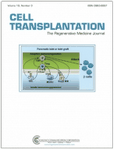
CELL TRANSPLANTATION
Advancing the frontiers of regenerative medicine.CELL TRANSPLANTATION is a premier multidisciplinary journal dedicated to advancing the field of regenerative medicine and transplantation, published by SAGE PUBLICATIONS INC. Since its initiation in 1992 and embracing an open-access model since 2017, the journal aims to disseminate high-quality research that covers both clinical and experimental studies on cell and tissue transplantation. With a notable impact reflected in its 2023 Q2 ranking in Biomedical Engineering and significant standings in Cell Biology and Transplantation, CELL TRANSPLANTATION serves as a vital resource for researchers, practitioners, and students alike. The journal's commitment to fostering innovation is evident in its diverse contributions that address the complexities of tissue engineering, immunology, and regenerative therapies, inviting readers to engage with cutting-edge science that is poised to transform medical practices and improve patient outcomes. The journal's insightful articles and research findings make it a crucial platform for knowledge exchange within the vibrant scientific community.
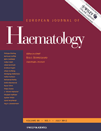
EUROPEAN JOURNAL OF HAEMATOLOGY
Advancing Hematology Research for a Healthier TomorrowEUROPEAN JOURNAL OF HAEMATOLOGY, published by Wiley, serves as a vital resource for experts in the field of hematology, focusing on the latest advancements in blood disorders and therapies. With an ISSN of 0902-4441 and an E-ISSN of 1600-0609, this esteemed journal has been disseminating knowledge since 1986 and continues to thrive, converging its visionary approach through to 2024. Notably, it holds a distinguished Q2 ranking in Hematology and an impressive Q1 ranking in the broader category of Medicine (miscellaneous) as of 2023, highlighting its significant contribution to the scientific community. With a Scopus rank of #45/137 and a 67th percentile in the field, the journal is recognized for its rigorous peer-reviewed research, making it an indispensable publication for researchers, practitioners, and students aiming to stay at the forefront of hematological studies. Though not an open-access journal, it ensures broad accessibility to critical findings via its subscription model, thus fostering an informed and globally engaged audience.

Iraqi Journal of Hematology
Advancing Hematology, Transforming LivesIraqi Journal of Hematology is a prominent peer-reviewed open-access journal dedicated to advancing the field of hematology. Published by Wolters Kluwer Medknow Publications, this journal provides a platform for researchers, professionals, and students to share cutting-edge findings and developments in various aspects of hematology, including blood diseases, diagnostics, and innovative treatments. Since its transition to open access in 2016, the journal has significantly increased its reach, allowing for wider dissemination of critical research to a global audience. With an ISSN of 2072-8069 and an E-ISSN of 2543-2702, the Iraqi Journal of Hematology strives to adhere to the highest scholarly standards and plays a vital role in the ongoing discourse in hematological research. Researchers are encouraged to contribute to this essential resource for the scientific community, contributing to the advancement of knowledge that ultimately improves patient care and treatment outcomes.
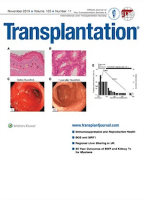
TRANSPLANTATION
Advancing the Frontiers of Transplantation Science.TRANSPLANTATION is a premier journal in the field of organ transplantation, published by Lippincott Williams & Wilkins, that has been a cornerstone of transplantation research since its inception in 1963. With an impressive impact factor cementing its status, this journal is categorized in the top quartile (Q1) of its field, currently ranking 6th out of 54 in the Scopus Medicine Transplantation category, placing it in the 89th percentile. The journal publishes original research, clinical studies, and reviews that significantly advance our understanding of transplantation science, ensuring that professionals, researchers, and students remain informed of the latest developments. Although it is not an open-access journal, it offers valuable insights that contribute to enhancing practice and improving outcomes in transplantation medicine, making it an essential resource for anyone involved in this dynamic and impactful discipline.